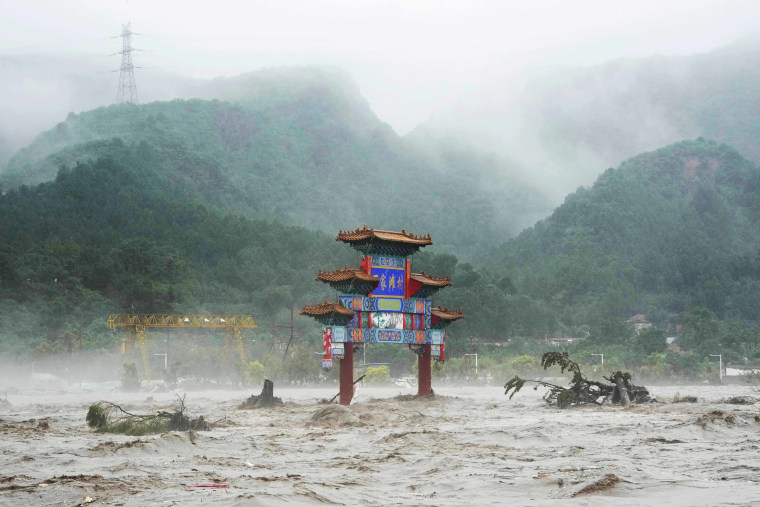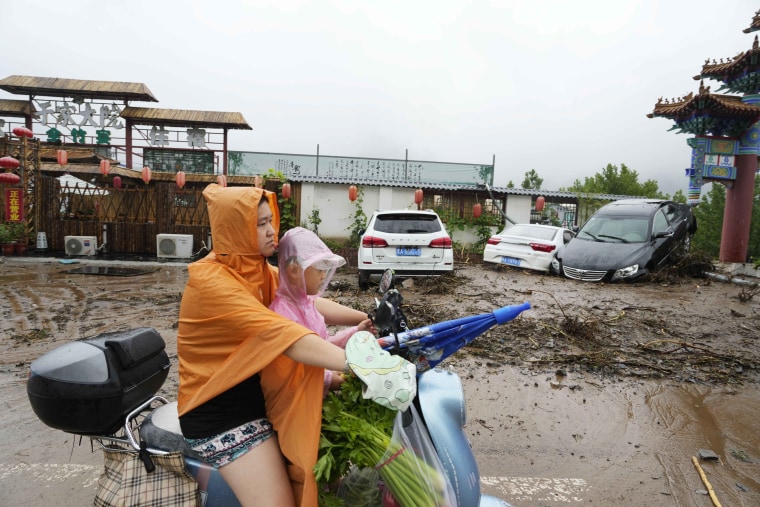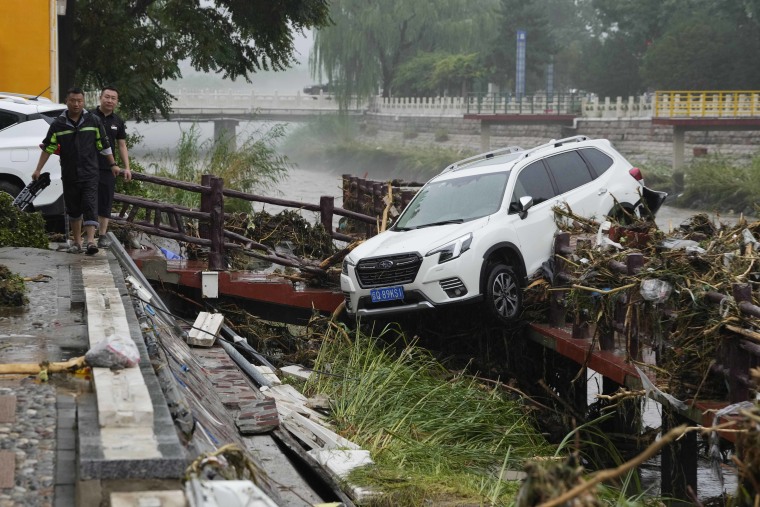BEIJING — Flooding in and around the Chinese capital of Beijing has killed at least 20 people, state media reported Tuesday, after days of heavy rain that caused flight cancellations, service disruptions and the evacuation of tens of thousands of people.
The extreme rainfall, which began Saturday night and was caused by the remnants of Typhoon Doksuri, was one of the worst storms to hit northern China in years.
Beijing recorded an average of 10.2 inches of rain from Saturday night to Tuesday morning, according to Xinhua, China’s state-run news agency, more than it usually receives in all of July. The maximum rainfall recorded was 29 inches at a reservoir in the city’s Changping district.
The fatalities include 11 in Beijing and 9 in the surrounding province of Hebei, Xinhua reported, citing local authorities. Twenty-seven others are missing in Beijing and six are missing in Hebei, the agency said.

In Beijing, which has a generally dry climate, the downpour has closed scenic spots, shut down subway lines and canceled or delayed hundreds of flights at the city’s two airports.
In the suburban Beijing district of Mentougou, one of the hardest hit, streets were clogged with water, thick mud and forest debris that had rushed down from nearby mountains. At least a foot of water remained on some streets where multiple vehicles had been abandoned and heavy equipment including backhoes, forklifts and bulldozers worked to clear water and mud that still sloshed over curbs and covered sidewalks.
The Yongding River, where cars had been seen being swept away by floodwaters, was still surging with muddy brown water littered with debris.
People in the area, some of them wearing plastic bags over their shoes, struggled to move around, their motor scooters getting stuck. One man waded to his partly submerged car to collect items from the trunk, while staff at a local supermarket shoveled mud and broken tree branches from the front entrance.
Local residents said it was unlike anything they had ever experienced.
“This is not the first time I have seen such a heavy rain, but there has not been such a severe flood,” said a man surnamed Qu who has lived in the Mentougou area for most of his life.
“Residential areas are without water because pumping stations are flooded,” he added.


Of the 27 people missing in Beijing, 13 are in Mentougou, while the others are in the neighboring districts of Changping and Fangshan, Xinhua reported. Chinese President Xi Jinping has ordered “all-out” search and rescue efforts, the agency said.
Mentougou and Fangshan remained at the highest flood alert level on Tuesday as heavy rains were expected to continue for a fourth day.
Like many places in the world, China has experienced a range of extreme weather this summer, including flooding and drought. Torrential rain in the southwestern metropolis of Chongqing killed at least 15 people in early July.
Even as the heavy rain persists, China is bracing for its third typhoon in as many weeks. Typhoon Khanun is expected to hit China’s densely populated eastern coastal provinces later this week.
Janis Mackey Frayer reported from Beijing, and Jennifer Jett reported from New York.
